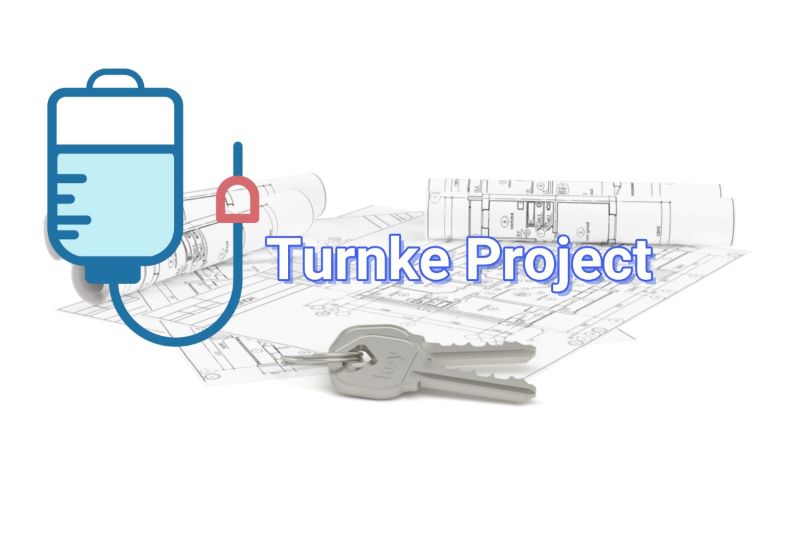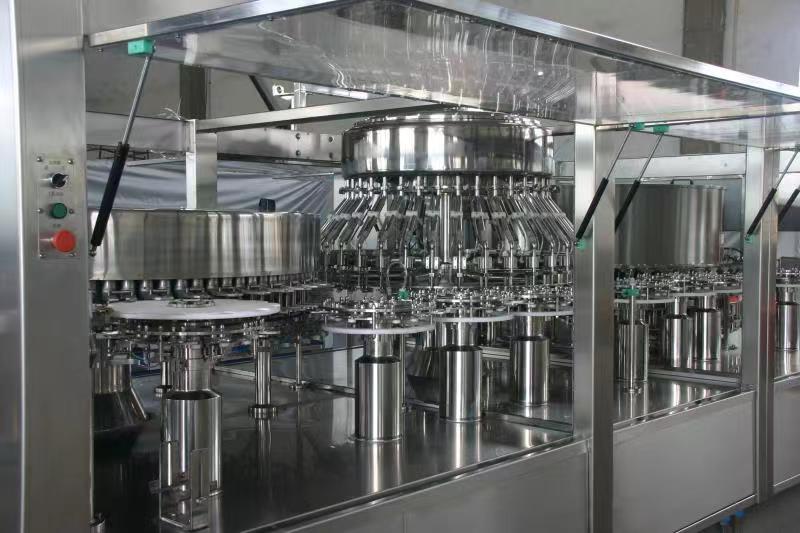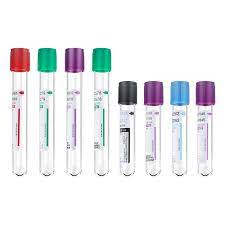The IV fluid production process in a turnkey project involves a series of crucial steps to ensure the safe and efficient manufacturing of infusion solutions. Pharmaceutical production in this context requires sterile production environments, automated production systems, and quality control measures to meet regulatory standards. Cleanroom technology and pharmaceutical engineering play a vital role in maintaining sterile conditions throughout the manufacturing process.
Turnkey project management encompasses aspects such as manufacturing compliance, IV solution packaging, sterile liquid filling, and process validation. Pharmaceutical plant design is critical for optimizing production lines and ensuring efficient IV solution formulation. GMP compliance and aseptic manufacturing practices are essential for meeting quality standards in pharmaceutical production.
Project planning and implementation for turnkey pharmaceutical facilities involve sterile processing, production cost management, and pharmaceutical technology integration. IV fluid sterilization is a key aspect of the manufacturing process to ensure product safety and efficacy. Production line optimization is essential for maximizing productivity and efficiency in IV solution manufacturing.
Overall, understanding the IV fluid solution manufacturing process in a turnkey project involves a comprehensive approach to meeting regulatory requirements, maintaining sterile conditions, and ensuring product quality throughout the production process.
An Overview of IV Fluid Production and Turnkey Project Solutions
IV fluid production involves the intricate process of manufacturing infusion solutions, ensuring sterile production to meet pharmaceutical standards. Turnkey project solutions manage the entire manufacturing process, from automated production systems to quality control. Cleanroom technology and pharmaceutical engineering play crucial roles in ensuring manufacturing compliance.
Production lines are optimized for IV solution packaging, with sterile liquid filling and process validation to guarantee safety and efficacy. Pharmaceutical plant design incorporates GMP compliance and aseptic manufacturing practices. Project planning and implementation are key in establishing turnkey pharmaceutical facilities for efficient sterile processing.
Cost management is essential in pharmaceutical technology, with a focus on IV fluid sterilization and formulation. Quality control measures are in place for project success, with emphasis on production cost management. Collaboration with pharmaceutical engineers and project managers ensures smooth operations throughout the manufacturing process.
The Importance of Sterile Production in the Manufacturing Process
Manufacturing IV fluid solutions is a complex process that requires sterile production to ensure the safety and efficacy of the final product. Sterile production is crucial in the manufacturing process of IV fluids for several reasons:
- IV fluid production involves the creation of infusion solutions that are administered directly into the bloodstream. Any contamination in the manufacturing process can lead to serious consequences for patients, making sterile production essential.
- Turnkey project solutions for IV fluid manufacturing often include automated production systems and cleanroom technology to maintain a sterile environment. This helps to prevent contamination and ensure the quality of the final product.
- Quality control in IV solution production is essential to meet pharmaceutical production standards. Sterile production processes help to guarantee that the IV fluids meet the necessary requirements for safety and efficacy.
- Sterile liquid filling and IV fluid sterilization are critical steps in the manufacturing process. These processes ensure that the IV fluids are free from contaminants and safe for patient use.
- Aseptic manufacturing practices, such as process validation and GMP compliance, are also essential in IV fluid production. Sterile production helps to maintain the integrity of the final product and ensure that it meets regulatory requirements.
- Pharmaceutical plant design and sterile processing are key considerations in the manufacturing of IV fluids. Proper design and processing help to minimize the risk of contamination and optimize production efficiency.
In conclusion, sterile production is of utmost importance in the manufacturing process of IV fluids. It ensures the safety, quality, and effectiveness of the final product, making it essential for pharmaceutical project implementation and turnkey pharmaceutical facilities. By prioritizing sterile production, pharmaceutical companies can effectively manage production costs, enhance pharmaceutical technology, and deliver high quality IV fluid solutions to patients in need.
How Automated Production Systems Revolutionize IV Fluid Production
Automated production systems have completely transformed the IV fluid production process. With the advancement of technology, turnkey project solutions have made manufacturing IV fluids more efficient and streamlined. Pharmaceutical production of infusion solutions requires precise and sterile production environments, which can be achieved through automated production systems.
Turnkey project management plays a crucial role in implementing automated production systems for IV fluid manufacturing. These systems ensure quality control in IV solution production by utilizing cleanroom technology and pharmaceutical engineering principles. Leveraging manufacturing compliance and IV solution packaging, automated systems enable sterile liquid filling and process validation.
Pharmaceutical plant design is essential in optimizing production lines for IV fluid sterilization. Compliance with Good Manufacturing Practices (GMP) ensures aseptic manufacturing processes are followed. Project planning for turnkey pharmaceutical facilities includes sterile processing and production cost management to enhance pharmaceutical technology.
In conclusion, the integration of automated production systems has revolutionized IV fluid production by enhancing efficiency, quality, and compliance standards in pharmaceutical manufacturing processes.
Quality Control in IV Solution Production: Ensuring High Standards
Quality control in IV solution production is crucial to ensure high standards in the manufacturing process. In the pharmaceutical industry, where IV fluid production is part of the turnkey project solutions, maintaining quality control is essential for producing safe and effective infusion solutions.
Pharmaceutical production facilities focus on sterile production environments to prevent contamination and ensure product integrity. Turnkey project management involves implementing automated production systems and cleanroom technology to meet stringent manufacturing compliance standards.
Quality control in IV solution production includes processes such as IV solution packaging, sterile liquid filling, process validation, and pharmaceutical plant design. IV fluid sterilization, production line optimization, and IV solution formulation are key aspects of ensuring GMP compliance and aseptic manufacturing.
Project planning and implementation play a vital role in maintaining high quality standards in pharmaceutical production. Turnkey pharmaceutical facilities are designed with sterile processing in mind, incorporating production cost management and pharmaceutical technology to optimize the manufacturing process.
In conclusion, quality control in IV solution production is essential to ensure high standards are met in pharmaceutical manufacturing. By focusing on GMP compliance, aseptic manufacturing, and project planning, pharmaceutical companies can maintain the integrity and safety of infusion solutions for patients in need.
For more information about quality control in pharmaceutical production, you can visit the Wikipedia page on GMP compliance: GMP Compliance.
The Role of Cleanroom Technology in Pharmaceutical Engineering
Cleanroom technology plays a crucial role in pharmaceutical engineering, particularly in the production of IV fluid solutions. These controlled environments are essential for maintaining the sterility required for pharmaceutical production to ensure the safety and efficacy of infusion solutions.
In a turnkey project for IV fluid production, cleanroom technology is integrated into the manufacturing process to create a sterile production environment. Automated production systems are utilized within cleanrooms to streamline the manufacturing process and ensure consistent quality control in IV solution production.
Cleanroom technology also plays a key role in pharmaceutical plant design to ensure manufacturing compliance with regulatory standards such as GMP compliance. Sterile liquid filling and IV fluid sterilization processes are carried out within cleanrooms to meet aseptic manufacturing requirements.
Process validation is essential in pharmaceutical engineering, and cleanroom technology provides the controlled environment necessary to validate the production line optimization of IV solution formulation. It also facilitates project planning and implementation for turnkey pharmaceutical facilities, ensuring sterile processing and production cost management.
Overall, cleanroom technology is essential in pharmaceutical engineering for the production of IV fluid solutions, providing the sterile environment required for manufacturing compliance, quality control, and aseptic manufacturing practices. It is a critical component in ensuring the safety and efficacy of pharmaceutical products through meticulous production processes.
Complying with Manufacturing Standards for Safe and Efficient Infusion Solutions
Manufacturing standards for IV fluid production are crucial to ensuring the safe and efficient production of infusion solutions. Turnkey project solutions offer comprehensive manufacturing processes for pharmaceutical production, focusing on sterile production and quality control. Automated production systems and cleanroom technology play a vital role in maintaining the integrity of the IV solution manufacturing process.
Pharmaceutical engineering and manufacturing compliance are essential in designing pharmaceutical plants for IV solution packaging and sterile liquid filling. Process validation is key in ensuring that the production line is optimized for efficiency and quality. GMP compliance and aseptic manufacturing practices are fundamental in meeting regulatory requirements.
Project planning and implementation for turnkey pharmaceutical facilities require expertise in sterile processing and production cost management. Pharmaceutical technology plays a crucial role in IV fluid sterilization and formulation. By adhering to stringent manufacturing standards, companies can ensure the safety and efficacy of infusion solutions for patients in need.
IV FLUID SOLUTION LINE


